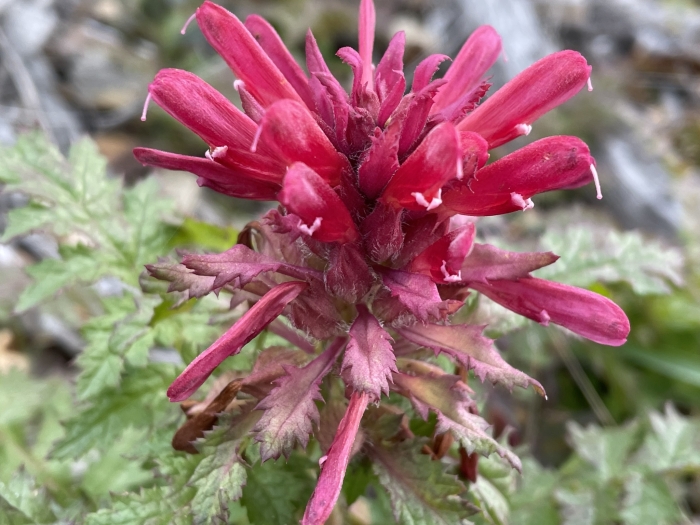Indian Warrior
(Pedicularis densiflora)
Indian Warrior (Pedicularis densiflora)
/
/

Henrik Kibak
CC BY 4.0
Image By:
Henrik Kibak
Recorded By:
Copyright:
CC BY 4.0
Copyright Notice:
Photo by: Henrik Kibak | License Type: CC BY 4.0 | License URL: http://creativecommons.org/licenses/by/4.0/ | Rights Holder: Henrik Kibak | Publisher: iNaturalist | Date Created: 2021-03-14T02:44:10Z |
























Estimated Native Range
Summary
Pedicularis densiflora, commonly known as Indian Warrior, is a perennial herb native to the diverse ecosystems of Mexico, California and Oregon, including chaparral, open woodlands, and particularly oak woodlands. It typically grows to a height of 12 to 18 inches (30 to 45 centimeters). Indian Warrior is characterized by its stout, sometimes reddish stems and deeply lobed, fern-like leaves. From late winter to early spring, it produces dense spikes of tubular flowers that range in color from deep red to bright pink, which are highly attractive to pollinators such as bees and hummingbirds.
The plant’s showy flowers make it a desirable addition to native plant gardens and pollinator-friendly landscapes. Indian Warrior is a facultative root parasite, meaning it can photosynthesize on its own but often taps into the roots of other plants, particularly those in the heath family (Ericaceae), to obtain nutrients. This parasitic behavior does not typically harm its host plants significantly. In cultivation, Indian Warrior prefers well-drained soils and can tolerate partial shade, though it flourishes in full sun. It is relatively low-maintenance, requiring minimal water once established. While it is not commonly used in large-scale landscaping, it can be an interesting specimen in specialized native plant collections. The plant’s medicinal properties have been recognized by indigenous peoples, who have used it for various purposes. However, gardeners should be aware that it is not a widely cultivated species and may be difficult to find in nurseries.CC BY-SA 4.0
The plant’s showy flowers make it a desirable addition to native plant gardens and pollinator-friendly landscapes. Indian Warrior is a facultative root parasite, meaning it can photosynthesize on its own but often taps into the roots of other plants, particularly those in the heath family (Ericaceae), to obtain nutrients. This parasitic behavior does not typically harm its host plants significantly. In cultivation, Indian Warrior prefers well-drained soils and can tolerate partial shade, though it flourishes in full sun. It is relatively low-maintenance, requiring minimal water once established. While it is not commonly used in large-scale landscaping, it can be an interesting specimen in specialized native plant collections. The plant’s medicinal properties have been recognized by indigenous peoples, who have used it for various purposes. However, gardeners should be aware that it is not a widely cultivated species and may be difficult to find in nurseries.CC BY-SA 4.0
Plant Description
- Plant Type: Herb
- Height: 0.5-2 feet
- Width: 0.75-1 feet
- Growth Rate: Slow
- Flower Color: Red
- Flowering Season: Spring, Winter
- Leaf Retention: Semi-deciduous
Growth Requirements
- Sun: Full Sun, Part Shade
- Water: Low
- Drainage: Fast, Medium
Common Uses
Bee Garden, Bird Garden, Border Plant, Butterfly Garden, Low Maintenance
Natural Habitat
native to the diverse ecosystems of Mexico, California and Oregon, including chaparral, open woodlands, and particularly oak woodlands
Other Names
Common Names: Red-Flower Pedicularis, Warrior’s Plume
Scientific Names: , Pedicularis densiflora, Pedicularis attenuata, Pedicularis brunnescens, Pedicularis densiflora subsp. densiflora,
GBIF Accepted Name: